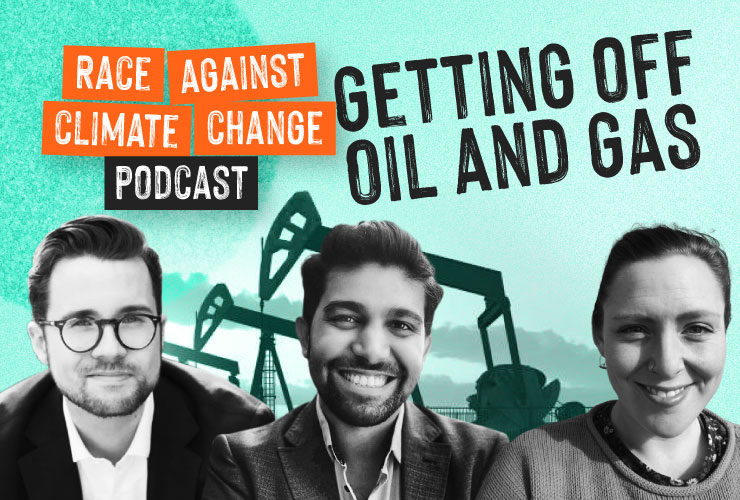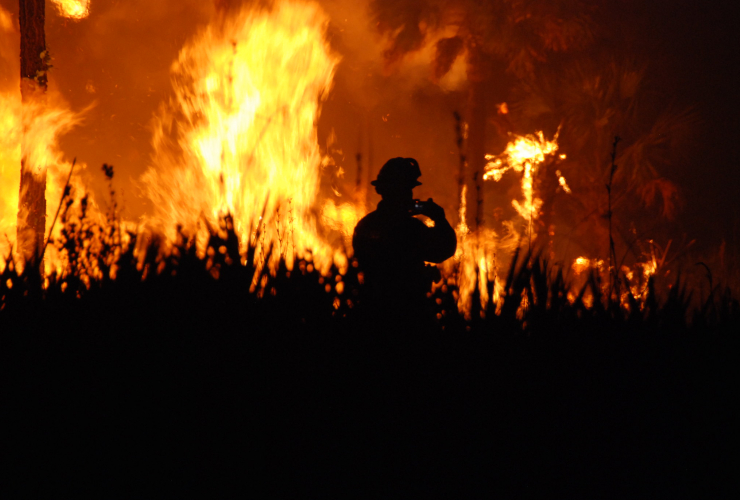The Port of Vancouver has a funny way of showing up for the climate crisis. At the end of November, it paid big bucks for ads in major local newspapers, trying to cover up its climate inaction with splashy language like: “We can’t wait to take action on climate change.” And yet, the port continues to drift unaided while we watch from the beach for this urgent climate action it speaks of.
This ad blitz is the ultimate in greenwashing, celebrating actions that have been ineffective at reducing total emissions. It does nothing to address anything core to its business or that would require actual system change by making the shipping industry pay for its pollution. The Port of Vancouver’s proposed action plan on climate change is the policy equivalent of a barge stuck on a beach — doing nothing leads to shipping going nowhere and disaster for communities.
Speed limits for ships reduce fuel use, underwater noise, and fatal collisions with whales, but the port only has a few voluntary programs to reduce speed. These programs are working on a small scale and have a broader and easy application to address climate — they can be scaled up without new technology or innovations. The port says it can’t wait to take action, but by keeping speed reductions voluntary, that is exactly what the port and Transport Canada are doing.
On the land, cleaner fuel mandates have been implemented by Canada and are reducing both emissions and air pollution. These programs can easily be applied to ocean-going ships that have multiple tanks and already fuel switch between the open ocean legs of their journeys and areas closer to shores. Ships could be required to use cleaner distillate fuels like marine gas oil (a more refined fuel already on the market and readily available) when in or near berth and at anchor through existing policies. By waiting, the port and Transport Canada are keeping profits high for the industry and contributing to air pollution and climate chaos and their devastating impacts on communities.
Our neighbours aren’t waiting, they are taking action now. The reality is that the ultra-dirty heavy fuel oil (HFO) that many ships burn coming into Vancouver is not allowed to be used or burned near California.
The Port of Seattle and the Washington Department of Ecology are also pausing waste discharges in Puget Sound until the pollution impacts from HFO systems can be studied. The Port of Seattle has already banned them.
In addition, Alaska has anti-dumping sewage and greywater pollution standards 18 times stronger than Canada. Our U.S. neighbours are showing the Port of Vancouver and Transport Canada to be asleep at the regulatory rudder when it comes to ocean, climate and public health protection from ship pollution.
At the recent UN climate meetings in Glasgow (COP26), we heard many interesting talking points about investment and research for shipping. As crucial as innovation is to the ongoing energy transition, what is the point of researching new technologies if we can’t even bring ourselves to apply the knowledge we already have to reduce emissions now? If current inaction is to be a window into our future, those innovations will just sit on the shelf beside the reports on speed limits and refined fuels.
We have solutions that are simple to implement. Let’s use them. Innovations are important and we need to further them, but if we don’t enforce what we already know, we are knowingly letting ourselves drift into an impossible situation.
The Port of Vancouver has been cut off from the rest of Canada due to climate disasters, and it is complicit in contributing to the scale of the damage. The Lower Mainland is being pummelled by storms and flooding (predicted by a B.C. government 2019 report, among others). After a summer that included a deadly heat dome and forest fire season, there is a literal barge sitting on one of our most popular beaches, and we are still dealing with damaged containers (if not worse) from the incidents on the ZIMi Kingston. If now is not the time to stop waiting and pull industry in to pay for their pollution, or to prevent it, will we ever see action, or will communities be left to pick up the waste?
Waiting is keeping profits high for industry and means increasing climate chaos for communities. Slower speeds and cleaner fuels are costs that polluters can and should pay for, instead of leaving it to communities to suffer through health problems, deal with marine species loss, and confront emergencies and climate disasters. In Canada, it is the polluter that is supposed to pay, not the community, but that is a reality that I am still waiting for to come to life.
Anna Barford (she/her) is the Canada shipping campaigner with Stand.earth. She grew up in the traditional, ancestral, and unceded Coast Salish territories of the xʷməθkʷəy̓əm (Musqueam), sḵwx̱wú7mesh (Squamish), and sel̓íl̓witulh (Tsleil-Waututh) peoples known as Vancouver, where she lives now with her partner and dog. Her work focuses on dumping from vessels and the environmental impacts of the shipping industry under Canada's jurisdiction.
ANOTHER National Observer
ANOTHER National Observer reporter who got to go to Glasgow from Vancouver, at 2 tonnes of carbon equiv for the flight? How come none of you even filed stories with the Glasgow dateline. Apparently, everybody went to watch slide shows, the ultimate zoom-friendly meeting; nobody has mentioned a conversation that required personal presence. Newspapers used to use stringers for foreign stories, because nobody could spend a week on a boat to pursue it - couldn't the N.O. have hired UK stringers?
Lots of people are traveling, and I'm diplomatic with most. But it's hard to read "climate chaos" and "climate emergency" who flip over and figure 2T of CO2e is a fair expenditure for them to have an experience.







Comments